The Overton Paradox
Chapter 12 of Probably Overthinking It is about three trends that form what I’m calling the Overton Paradox:
- Older people are more likely to say they are conservative.
- And older people hold more conservative views.
- But people don’t become more conservative as they get older — on average they get a little more liberal.
To demonstrate these trends, I used data from the General Social Survey.
Older people are more likely to say they are conservative:
And older people hold more conservative views:
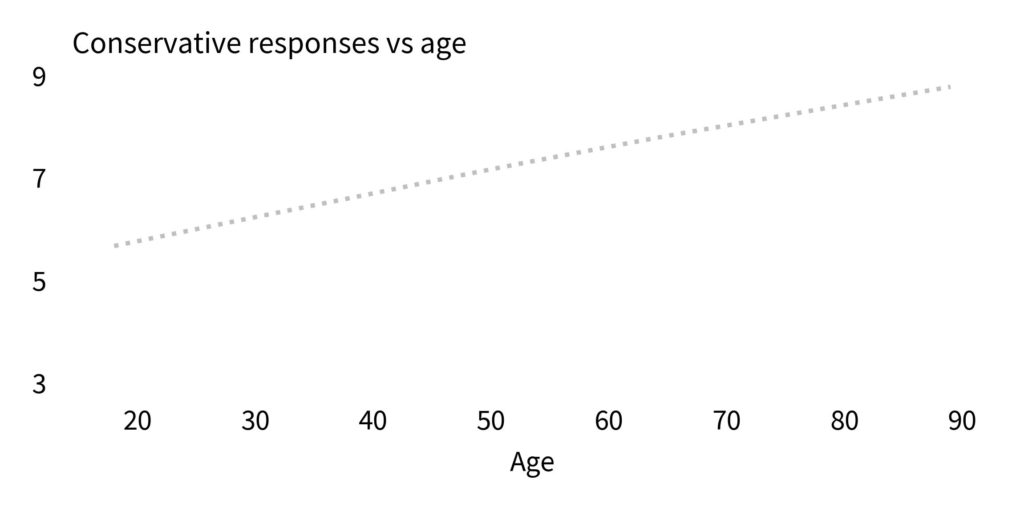
But if we split people up by decade of birth, most cohorts don’t become more conservative as they get older; on average they become a little more liberal.
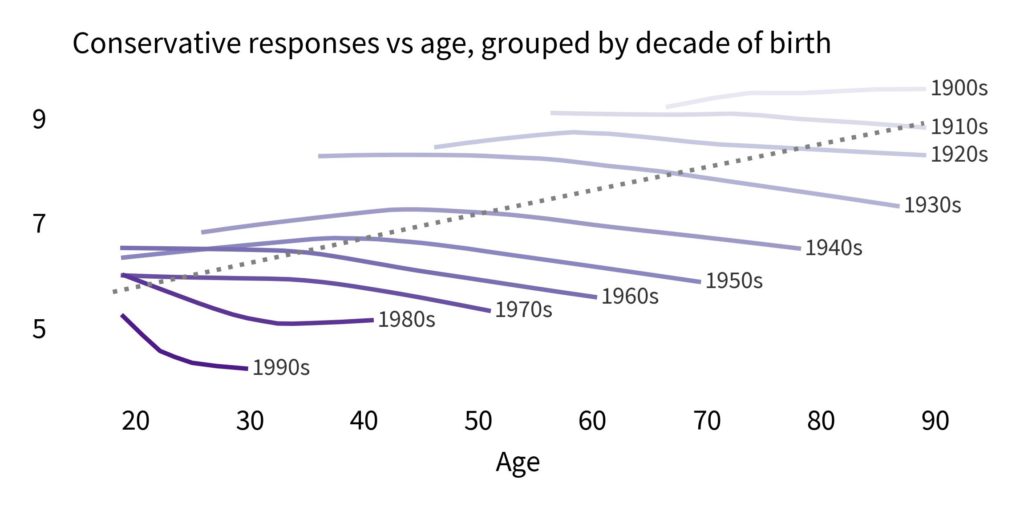
So if people become more liberal as they age, why are they more likely to say they are conservative?
I think the reason is that the perceived center of mass changes over time. Here’s how the average number of conservative responses has changed over the ~50 years of the GSS:
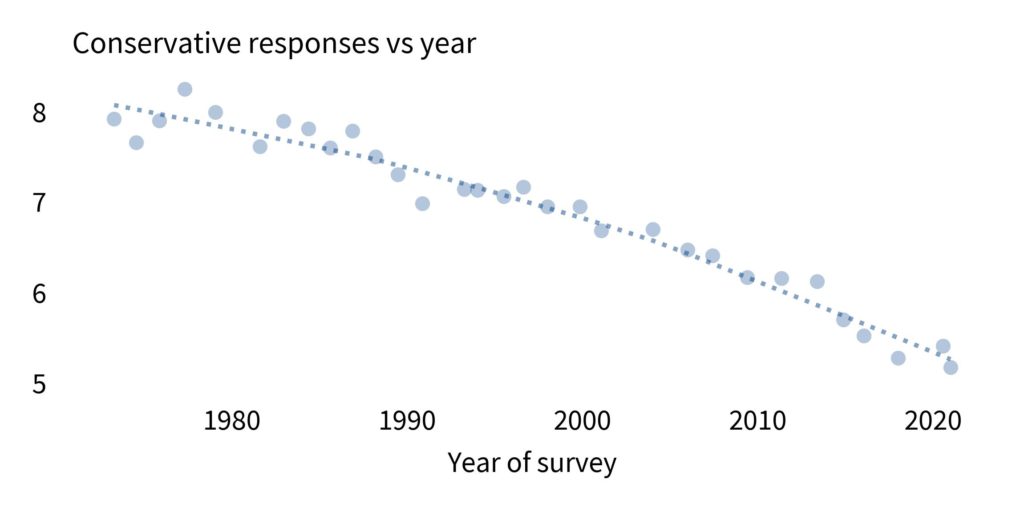
And it’s not just liberals going off the rails — all three groups have changed:
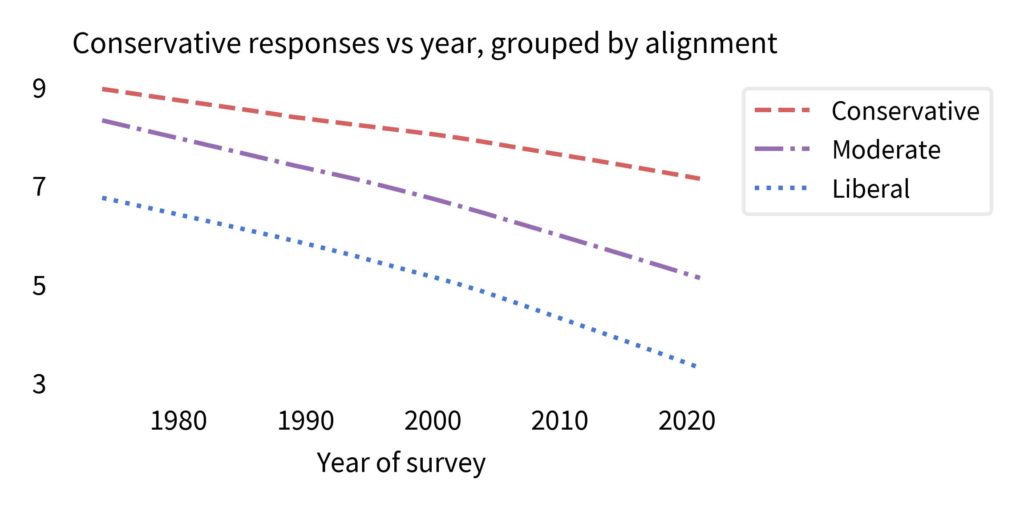
Let’s compare these changes to the average for people born in the 1940s:
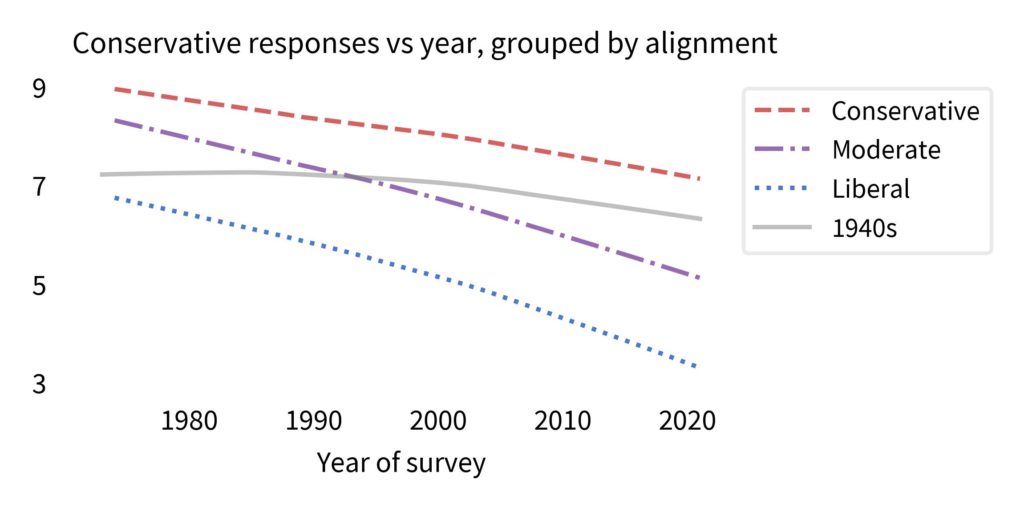
In 1970, when they were in their 20s, this cohort was about as liberal as the average liberal. In 1990, when they were in their 40s, they were indistinguishable from the average moderate. In 2020, they were in their 70s, they found themselves substantially right of center.
On average, they are more liberal now than they were in 1970, but the world has moved faster. They are more likely to say they are conservative because, relative to the center of mass, they are.